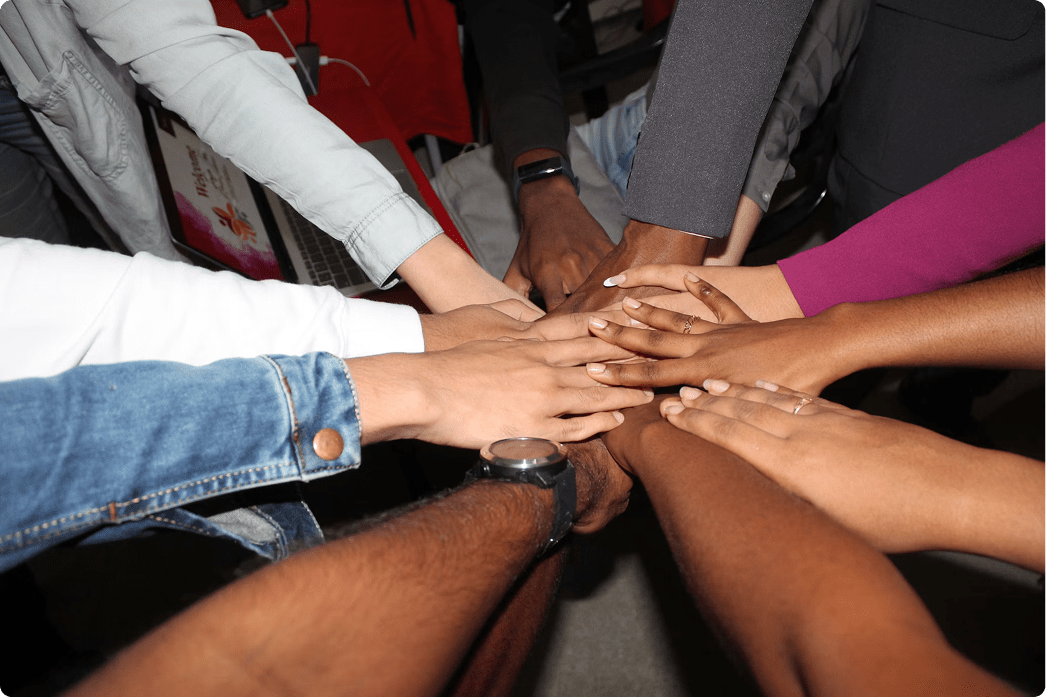January 30, 2025 · Jamie Forsk
Breaking the Cycle: How Support Groups Help in Overcoming Addiction

-
Introduction
The Importance of Connection
Addiction thrives in isolation. When struggling with gambling, many people retreat inward, hiding their problem out of shame or fear of judgment. But recovery is not meant to be a solo journey. One of the most powerful tools in overcoming addiction is finding a community that understands your experience.
What Are Support Groups?
Support groups are safe, structured environments where individuals facing similar challenges come together to share, listen, and support one another. Whether it's through peer-led meetings or professionally guided sessions, these groups offer a lifeline to those caught in the cycle of addiction.
-
Why Support Groups Work
Shared Experience Breaks Isolation
There’s something deeply healing about realizing you’re not alone. Hearing others describe the same struggles, emotions, and relapses can lift the weight of shame and open the door to self-forgiveness. It reminds people that their pain is valid — and shared.
Accountability and Motivation
Support groups provide gentle but consistent accountability. Knowing you’ll check in weekly, share your progress, or listen to others’ milestones can be a strong motivator to stay on track. You’re no longer just doing it for yourself — you’re part of something bigger.
Hope Through Real Examples
One of the most powerful things about support groups is witnessing recovery in real time. Seeing someone who’s been in your shoes now living a better life gives you a glimpse of your future. It turns the abstract idea of “getting better” into something tangible.
-
Types of Support Groups
12-Step Programs (e.g., Gamblers Anonymous)
These follow a structured format focused on personal responsibility, surrender, and connection with a higher power (as you define it). Gamblers Anonymous is one of the most established programs for those struggling with gambling.
Peer-Led Communities
Groups like SMART Recovery focus on self-empowerment, using science-based tools and group support without religious or spiritual elements. These communities are often more flexible and practical in their approach.
Online Forums and Meetings
Not everyone can attend in person — and thankfully, support is now more accessible than ever. Online groups and video meetings offer anonymity and ease of access, especially for those in remote areas or early in their recovery journey.
-
What to Expect in a Support Group
A Safe, Non-Judgmental Space
The golden rule of most support groups is respect and confidentiality. You can share your story — or simply listen — without pressure or fear of being judged. This emotional safety is what makes these spaces so powerful.
Structure and Consistency
Most groups follow a set rhythm: check-ins, open discussion, sometimes a reading or theme. The structure creates a dependable routine, which is vital for those rebuilding stability in their lives.
Support Without Pressure
You won’t be forced to talk, share your deepest secrets, or meet any kind of milestone. Participation is voluntary, and people move at their own pace. This flexibility makes it easier for newcomers to get comfortable.
-
Joining a Group: First Steps
Finding the Right Fit
Not every group will feel like home — and that’s okay. It might take attending a few different ones before you find a space that resonates. Look for groups that align with your values, comfort level, and goals.
Overcoming the Fear of the First Meeting
It’s totally normal to feel nervous before your first session. You might think, “I don’t belong here,” or “My story isn’t as bad.” But once you walk through the door — virtual or physical — you’ll see you’re exactly where you need to be.
Staying Committed
The benefits of support groups grow over time. The more regularly you attend, the more trust builds, and the deeper the sense of connection becomes. Like any habit, it takes time — but it’s worth it.
-
The Long-Term Impact of Community Support
Building Lasting Relationships
Many people form deep, lifelong friendships through support groups. These bonds can provide strength not just during recovery, but in every part of life.
Relapse Prevention
Having a support system makes it easier to weather setbacks. When urges hit or life gets hard, you have people to turn to — people who understand.
Empowerment Through Helping Others
Eventually, you may find yourself in a place to help someone else. Sharing your story, offering a kind word, or simply listening can be healing not just for them — but for you, too.
Articles
-
January 21, 2025 · Chris Fankson
How Online Gambling Addiction Affects Your Brain: Behind the SCENES
Online gambling has grown into a multibillion-dollar industry that operates 24/7, accessible from anywhere with a phone or laptop. Unlike traditional casinos, there’s no dress code, no closing hours, and no judgment. It’s designed for convenience, but that convenience comes at a cost. Many users don’t realize they’re slipping into a harmful pattern until it’s already well-established.

-

January 30, 2025 · Jamie Forsk
Breaking the Cycle: How Support Groups Help in Overcoming Addiction
Addiction thrives in isolation. When struggling with gambling, many people retreat inward, hiding their problem out of shame or fear of judgment. But recovery is not meant to be a solo journey. One of the most powerful tools in overcoming addiction is finding a community that understands your experience.
-
March 18, 2025 · Kate Banely
Responsible Gambling: What It Means and Why It Matters
Responsible gambling refers to engaging in gambling activities in a way that remains safe, controlled, and enjoyable. It involves setting personal limits, being aware of the risks, and taking steps to ensure that gambling doesn’t interfere with your life. It’s a mindset that encourages balance and moderation.
